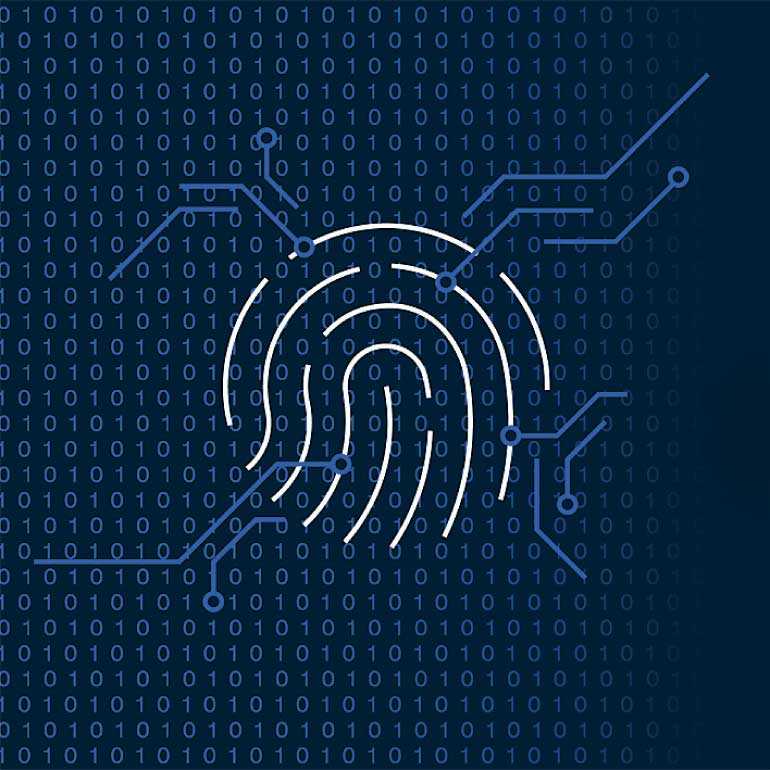Saturday Feb 14, 2026
Saturday Feb 14, 2026
Wednesday, 10 June 2020 00:42 - - {{hitsCtrl.values.hits}}

The current pandemic has touched many aspects of our lives, causing a great disruption with the delivery of public and private services happening mostly online, which means that the need for fast and secure identification to safely access to these eServices has become an absolute necessity.
While pre-pandemic, digital identities (IDs) were mainly adopted by those who enjoyed the ease and convenience of online services, the current situation that has put billions of citizens around the world under a strict lockdown has meant that today everyone could benefit from the service.
As most of us are confined at home to keep up with social distancing policies, all of our interactions with the outside world are being done thanks to the internet – we can work from home, stay informed, keep in touch with our friends/ family, engage with public and private service providers and fill in all necessary admin forms online (birth registration, ID doc renewal, social benefits application form, unemployment registration, etc.).
However, this increase in online interactions and transactions has unfortunately triggered a wave of fraudulent activity. Hackers are taking advantage of the current uncertainty to send out more phishing messages than usual, with varying degrees of sophistication. As such, being able to operate online safely and quickly, correctly identifying people, authenticating and authorising tasks and transactions, has never been so relevant.
How can trusted digital IDs help?
Providing easy access to remote healthcare: Trusted digital IDs allow for identity proofing to be done remotely by confirming that the person behind the screen is who they claim to be. Digital identity technology enables the secure remote on-boarding of online services. Also, access to eHealth and remote monitoring services such as video doctors’ consultations, are not just in a high demand but have become a necessity, to ensure the confidentiality of patient data and be protected against ID theft. Not only should patients be able to prove their identity and healthcare coverage entitlement remotely, but also the need to trust the person on the other side is a healthcare professional they can rely on.
Enabling essential travel: To better protect their citizens in such pandemic context, many countries have implemented in-country travel restrictions along with closing their borders for outside visitors. Citizens are requested to carry with them a proof of identity and an authorisation document when they go out. However, passing on physical documents to a police officer may not be very secure as recent news suggest that the virus could live on surfaces for a few days. Therefore, the next generation of mobile IDs provide a contactless approach to both online and in-person citizens’ identification. Users only need to open their digital ID wallet, or equivalent, with a PIN or via biometric authentication, to generate a QR code which can be read by third party ID verifiers to securely exchange data through Bluetooth Low Energy, NFC or Wi-Fi Aware communication protocols. During this current situation, it is essential that governments around the world communicate with citizens in real time by sharing up to date information. Smartphone based, technologies such as the digital ID wallet enable push notifications to be sent to citizens with the latest updates and recommendations to keep safe.
Ensuring business continuity and delivery of key services: Business and serving customers online are the new normal. Organisations from a range of industries have had to quickly adapt in order to continue operating. Thanks to digital IDs, service providers can remotely run fast and reliable identity checks on new customers and therefore, continue essential service delivery. Moreover, advanced digital IDs enable legally binding digital signatures, meaning that signing documents such as doctor’s prescriptions or notarial acts, etc. can be done remotely.
Why are digital IDs so relevant?
Digital IDs have become imperative for governments to build-in the necessary operational resiliency to survive this new reality, while maintaining the delivery of public services and equip citizens with a trusted technology which will protect them from ID theft and secure their basic rights. The current pandemic is clearly showcasing the value of IT and digital transformation, and governments should use this time to accelerate their eGovernment services digitalisation.
In countries where governments have already embraced digital platforms, civil servants can also work remotely from their homes, which helps to effectively combat the spread of the virus without interrupting public services.
In Estonia, for instance, which is one of the most digitally advanced countries in Europe, 99% of public services are available online 24/7, meaning that access to services remains easy and fluid even during a crisis. This just one such successful implementation of digital ID. (https://e-estonia.com/a-digital-success-story-the-cornerstone-of-e-estonia-celebrates-its-jubilee/)
Such a move from government authorities, would prepare citizens for a brighter future with more public and private services available online, better cost efficiency and convenience and less queuing at admin desks – as well as numerous other benefits. This will help save time to take better care of one another, and stay safe while staying tuned.
References.
https://blog.gemalto.com/government/2020/04/20/why-digital-ids-have-never-been-so-relevant/
https://www.thalesgroup.com/en/markets/digital-identity-and-security/government/identity